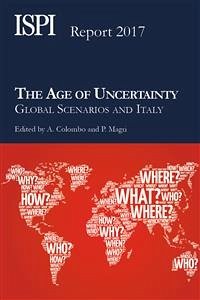Uncertainties have piled up over the past decade, casting doubt on the stability of the international system. They have been further compounded and exacerbated by last year’s events: from Brexit, and the ensuing uncertainty about the future of the UK-EU relations, to the ever-growing success of populist and nationalist movements across Europe; from the unnerving paralysis of the international community on the war in Syria, to the new wave of terrorist attacks in Europe, to the new economic and political crises of pivotal states (Brazil, South Africa, Egypt, and Turkey) in their respective regions. Not to mention Donald Trump’s victory in the US presidential election, which may turn out to be a new and momentous source of uncertainty, especially with regard to US-EU relations, the residual resilience of the multilateral framework, as well as the international economic balance of power.
The 2017 ISPI Report analyses how last year’s major events add to international uncertainties, also with a view to identifying long-term, beyond-the-horizon trends. The first part of the Report focuses on the evolution of the international context, from both a political and an economic standpoint. The second part shifts the spotlight to Italy, where global uncertainties overlap with deep-rooted domestic uncertainties and vulnerabilities.
Hinweis: Dieser Artikel kann nur an eine deutsche Lieferadresse ausgeliefert werden.
The 2017 ISPI Report analyses how last year’s major events add to international uncertainties, also with a view to identifying long-term, beyond-the-horizon trends. The first part of the Report focuses on the evolution of the international context, from both a political and an economic standpoint. The second part shifts the spotlight to Italy, where global uncertainties overlap with deep-rooted domestic uncertainties and vulnerabilities.
Hinweis: Dieser Artikel kann nur an eine deutsche Lieferadresse ausgeliefert werden.









